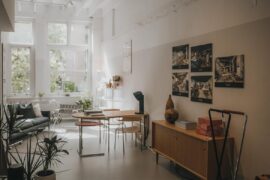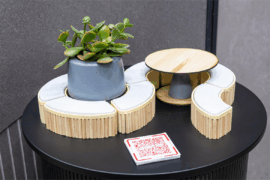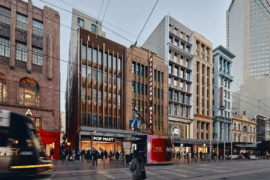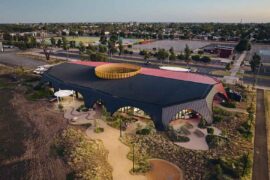Here’s how New Zealand based architect Rufus Alexander Knight created a retail concept for Instagram sensation and genre defying womenswear label, Lonely.
Lonely – a lingerie and loungewear label admired globally for challenging the stereotypes of its genre, chose Rufus Alexander Knight to imagine both their Wellington and Pronsonby stores. Knight, who also designed the interiors of the Alexander Wang flagship in London, mixed hard and soft surfaces – reflecting the brand’s broader ideals of luxury, intimacy and confidence.
Lonely boasts a strong digital foothold, with some 276,000 Instagram followers, sell-out online sales, and a visual diary aimed at celebrating diversity and empowerment titled ‘Lonely Girls Project’. In the same way that the label was being received online, its stores “needed a look and feel that had a visual experience that would translate across the same physical & digital platforms,” Knight explains.
The brief was to fashion the two stores, “with a design direction that reflected the brand’s global outlook and to create a space which would align them with international shopping districts such as Paris, New York, and Tokyo, as they strengthen their global reach from a well-established online following.”
Materials and textures are muted, softened and tactile – a palette of warm grey, earthy green, and deep purple were used to continue Lonely’s theme of sophistication and simplicity. “Conceptually I was interested in exploring an idea of what we referred to as ‘soft industrial’,” says Knight. “A dichotomy between robust materials that had a tactile or unexpected finish.”
Knight has achieved this through rough salvaged timber laid in an ornate parquet, using a classic grey marble but removing it’s cold glossy sheen through sandblasting, and by incorporating an industrial aluminium mesh but with a fine delicate perforation. ‘This assemblage, combined with Lonely’s focus on exceptional follow-through and customer service, makes the space feel sophisticated without feeling unapproachable,” he adds.
Knight’s intent for Lonely’s bricks and mortar frontage was to dissolve “the transactional nature of retail”, and to relax the sales and fit process, giving the spaces a strong sense of domesticity. “I think the ‘muted-ness’ of the retail experience is also because Lonely has such a strong visual component, through the Lonely Girls project, we were able to make a commitment to let the store say something through its design and materiality rather than any hard branding.”
“While fashion is in constant flux, the transactional nature of retail hasn’t changed much over time, now however, the value lies in how you frame the transaction between customer and product, and by incorporating design into this process brands can better articulate their values and learn more about themselves ultimately offering a better product.”
INDESIGN is on instagram
Follow @indesignlive
A searchable and comprehensive guide for specifying leading products and their suppliers
Keep up to date with the latest and greatest from our industry BFF's!

Sydney’s newest design concept store, HOW WE LIVE, explores the overlap between home and workplace – with a Surry Hills pop-up from Friday 28th November.

From the spark of an idea on the page to the launch of new pieces in a showroom is a journey every aspiring industrial and furnishing designer imagines making.

Merging two hotel identities in one landmark development, Hotel Indigo and Holiday Inn Little Collins capture the spirit of Melbourne through Buchan’s narrative-driven design – elevated by GROHE’s signature craftsmanship.

Warren and Mahoney’s The Mill in Queenstown blends architecture, wellbeing and landscape, creating a transparent training facility.

With 26 shortlisted homes, a 13-member jury and four standout winners, the 2025 Habitus House of the Year program wrapped up last night in Sydney with Winnings.
The internet never sleeps! Here's the stuff you might have missed

In the New Year, architecture will be defined by its ability to orchestrate relationships between inside and outside, public and private, humans and ecology, and data and intuition.

At the Munarra Centre for Regional Excellence on Yorta Yorta Country in Victoria, ARM Architecture and Milliken use PrintWorks™ technology to translate First Nations narratives into a layered, community-led floorscape.